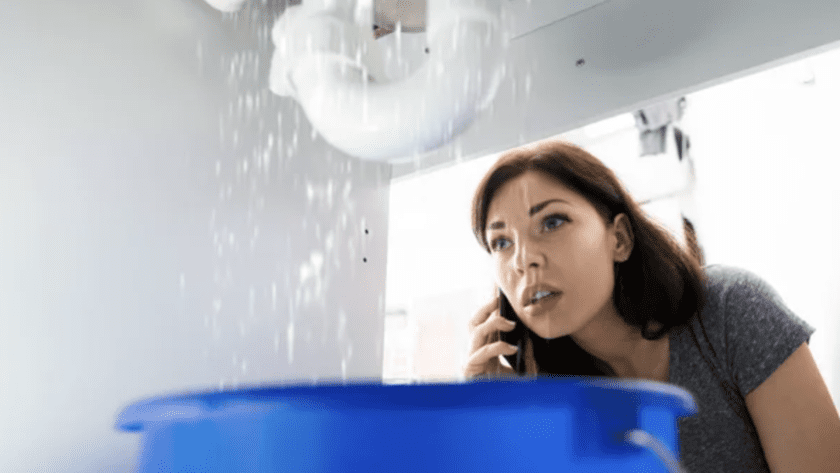Plumbing emergencies can strike at any time, causing panic and stress. A burst pipe, overflowing toilet, or a sudden leak can create chaos in your home. While waiting for the Fort Worth plumber to arrive, there are crucial steps you can take to minimize damage and maintain safety. Here’s a comprehensive guide on what to do while waiting for professional help.
Understanding Common Plumbing Emergencies
Burst Pipes
A burst pipe can cause significant water damage in a short period. It’s usually due to freezing temperatures, old pipes, or excessive water pressure.
Leaking Faucets
A leaking faucet is more than an annoyance; it can waste a significant amount of water and increase your utility bills.
Clogged Drains
Clogs can occur in sinks, showers, and toilets, often leading to backups and potential flooding if not addressed promptly.
Overflowing Toilets
This is usually caused by blockages or issues with the float mechanism inside the tank. An overflowing toilet can quickly become a messy problem.
Immediate Steps to Take
Shut Off the Water
The first and most important step in any plumbing emergency is to shut off the water supply. This can prevent further damage and flooding.
- Locate the Main Shutoff Valve – This is usually found in the basement, crawl space, or near the water meter.
- Turn Off the Valve – Rotate the valve clockwise to shut off the water supply.
- Check for Localized Valves – For minor leaks, you may only need to shut off the water to the affected fixture. Look for a valve under sinks or behind toilets.
Contain the Leak
- Use Towels and Buckets – Place towels around the leak to soak up water and use buckets to catch dripping water.
- Seal the Leak Temporarily – Use plumber’s tape or a patch kit to temporarily seal the leak until the plumber arrives.
Addressing Specific Issues
For Burst Pipes
- Turn Off Electricity – If water is near electrical outlets or appliances, turn off the electricity to the affected area to prevent electrocution.
- Drain the System – Open all faucets and flush toilets to drain the remaining water from the pipes.
For Leaking Faucets
- Shut Off the Local Valve – Turn off the water supply to the leaking faucet.
- Relieve Pressure – Turn on the faucet to drain any remaining water and relieve pressure in the pipes.
For Clogged Drains
- Avoid Chemical Cleaners – These can damage your pipes. Instead, use a plunger or a plumbing snake to try to dislodge the clog.
- Remove Visible Blockages – Use gloves to remove any visible debris causing the clog.
For Overflowing Toilets
- Stop the Water Flow – Open the tank and lift the float to stop more water from entering the bowl.
- Use a Plunger – Carefully plunge the toilet to try to clear the blockage.
Preventive Measures
Regular Maintenance
Regularly inspecting and maintaining your plumbing system can prevent many emergencies. Look for signs of wear and tear, such as rusted pipes or slow drains.
Insulate Pipes
In cold climates, insulate your pipes to prevent them from freezing and bursting during winter.
Install Water Alarms
Water alarms can alert you to leaks before they cause significant damage.
Communication with the Plumber
Provide Detailed Information
When you call the plumber, provide as much information as possible about the issue. This helps them come prepared with the necessary tools and parts.
- Describe the Problem – Be clear and concise about the nature of the emergency.
- Mention Any Temporary Fixes – Inform them of any steps you’ve taken to manage the situation.
Prepare the Area
- Clear the Space – Move furniture and other obstacles away from the affected area to give the plumber easy access.
- Ensure Safety – Make sure the area is safe for both you and the plumber, especially if electricity or hazardous materials are involved.
Dealing with Water Damage
Dry Out the Area
- Use Fans and Dehumidifiers – To minimize mold growth, use fans and dehumidifiers to dry out the affected area.
- Remove Wet Items – Take out wet carpets, furniture, and other items to dry them separately.
Sanitize
- Clean with Disinfectants – After removing the water, clean surfaces with disinfectants to prevent mold and bacteria growth.
When to Call Emergency Services
In some cases, you might need to call emergency services instead of waiting for a plumber. If there’s a risk of structural damage or electrical hazards, prioritize safety and get immediate help.
Signs You Need Immediate Help
- Major Flooding – Large amounts of water that cannot be contained.
- Electrical Risks – Water near electrical outlets or appliances.
- Sewage Backups – Raw sewage posing health risks.
Final Thoughts
While plumbing emergencies are stressful, knowing what to do while waiting for the plumber can significantly reduce damage and maintain safety. Always remember to stay calm, act quickly, and prioritize safety over everything else. Regular maintenance and preventive measures can also go a long way in minimizing the risk of such emergencies.
In summary:
- Shut off the water immediately.
- Contain the leak with towels and buckets.
- Address specific issues like burst pipes or overflowing toilets with targeted actions.
- Communicate effectively with the plumber and prepare the area.
- Deal with water damage promptly to prevent further issues.
By following these steps, you can manage the situation effectively until professional help arrives, ensuring that your home remains as safe and dry as possible.




